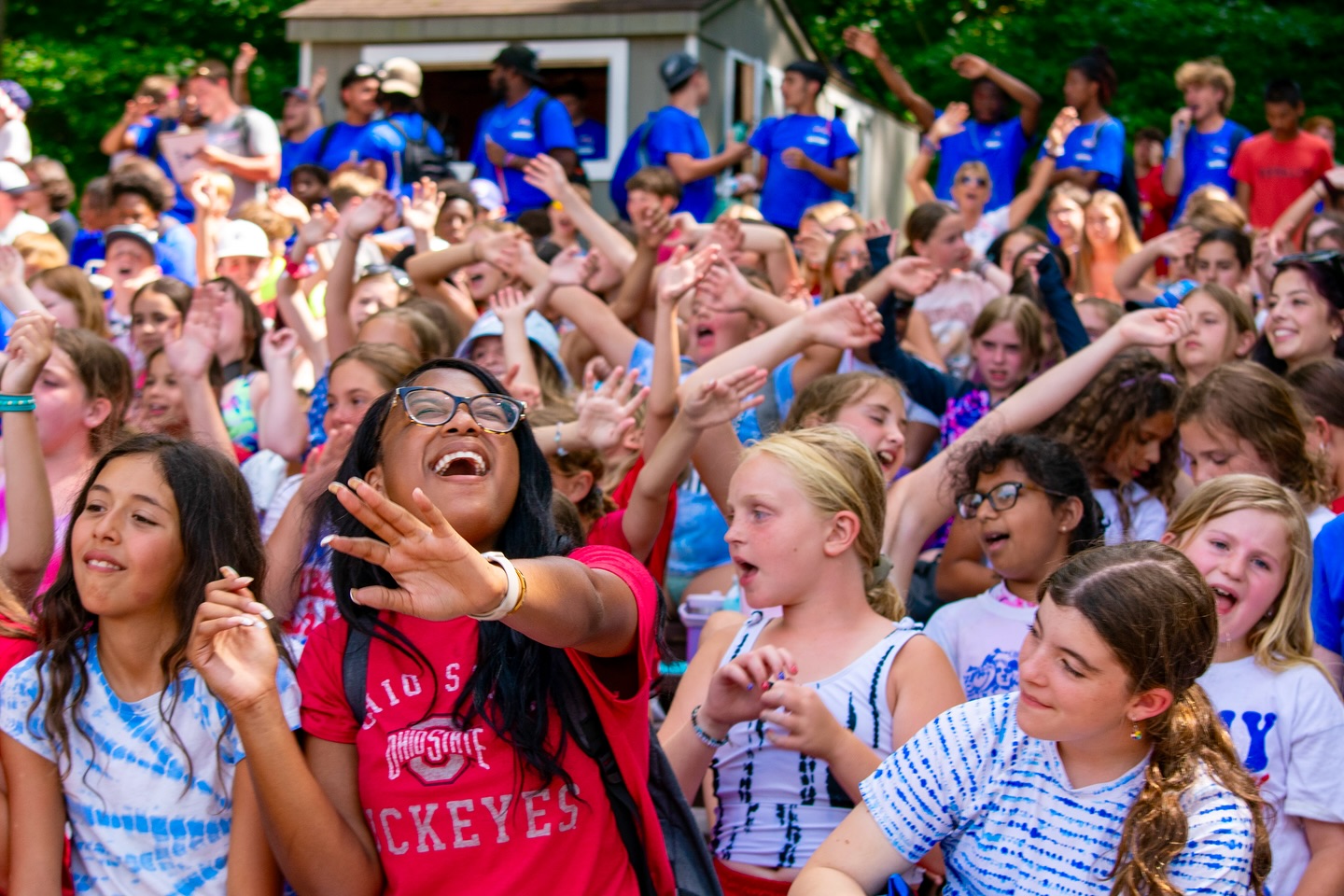
 When parents search for the best day camp in New Jersey, they’re not looking for slogans—they want real information. Safety records. Staff training. Program depth. Camper return rates. Transportation coverage. Social-emotional outcomes.
When parents search for the best day camp in New Jersey, they’re not looking for slogans—they want real information. Safety records. Staff training. Program depth. Camper return rates. Transportation coverage. Social-emotional outcomes.
This page gives you the data behind what makes a camp truly exceptional and shows how families can compare New Jersey day camps using objective, parent-centered criteria.
If you’re comparing multiple camps, this page works best alongside:
1. Why Families Ask “Which Is the Best Day Camp in NJ?”
When parents compare New Jersey day camps, they’re usually trying to answer:
- Which camp has the strongest safety systems?
- Which camp has the best staff training and supervision?
- Which camp has the most program variety?
- Which NJ day camps offer reliable transportation?
- Which camp environment (woods, lake, fields, indoor/outdoor mix) fits my child?
- Which camp has the best leadership programs or inclusion support?
- And the biggest one: Will my child be happy, included, and supported?
These are the same factors that sit behind many Google searches like “best day camps in NJ,” “NJ day camp comparison,” “New Jersey summer camps with transportation,” and “safest day camps in New Jersey.”
2. Objective Data: What Makes a Day Camp “Great”?
Every camp will claim to be “the best.” The more useful question is: what data can parents use to compare? Below are the core evaluation categories that apply across New Jersey day camps.
Safety & Staff Training
Safety is always the top priority—but strength varies widely from camp to camp. Ask about:
- Background checks and reference checks for all staff
- Pre-season training days (many camps do 2–4; stronger programs do 6–10)
- In-season refreshers and evaluations throughout the summer
- Lifeguard certifications (CPR, First Aid, waterfront rescue)
- Emergency procedures and drills (weather, medical, transportation)
- Camper-to-staff ratios (strong camps often aim for 1:4–1:6 for younger campers)
For a detailed framework you can take on tours, see How to Evaluate Day Camp Safety.
Program Depth & Variety
New Jersey camps range from small, single-focus programs to large campuses with dozens of specialties.
Data points to compare:
- Number of program areas (e.g., 30+, 50+, 70+)
- Whether older campers get elective or choice-based scheduling
- Skill progression (beginner → advanced pathways in sports, arts, or STEM)
- Availability of unique areas like boating, ropes course, skatepark, biking, outdoor survival skills, or theater
- Teen leadership tracks for entering 9th & 10th graders
You can see an example of how program depth is laid out in Liberty Lake vs Other NJ Camps — Comparison.
3. Campus Environment: Outdoor, Indoor, or Nature-Based?
Parents often search for “outdoor day camps in NJ,” “nature-based camps,” or “summer camps near me with a lake.” The physical environment plays a huge role in confidence-building, stress levels, and how “camp-like” the experience feels.
Factors to consider:
- Acreage (e.g., 10 acres vs 40 acres vs 60 acres)
- How much time is spent outdoors vs indoors
- Presence of woods, trails, open fields, and water
- Access to shade and covered structures on hot or rainy days
- Whether the camp feels more like a park, a school, or a true camp environment
If you’re drawn to nature-based learning and outdoor experiences, you might like Outdoor Learning: Why Nature-Based Camps Build Confidence.
4. Swim & Waterfront: How Strong Is the Instruction?
Almost every New Jersey day camp promotes its swim program, but the structure and safety systems can be very different from one camp to another.
Ask camps:
- Do you follow a Red Cross–style swim progression or another formal system?
- How often do campers have instructional swim vs free swim?
- How many lifeguards and counselors are on deck and in the water?
- How do you support nervous or non-swimmers?
- Is the swim area a pool, lake, or both—and how shallow/deep is it?
These data points matter a lot if your child is still learning to swim or anxious around water.
5. Social-Emotional Growth: The “Data” That Doesn’t Fit on a Chart
Today’s parents are not just looking for fun; they want camps that help kids:
- Build friendship skills
- Gain confidence and independence
- Recover from a tough or anxious school year
- Practice teamwork, resilience, and empathy
- Spend time in a screen-free, real-world environment
Two helpful companion articles are:
- How Summer Camp Builds Social Skills Better Than School
- Screen-Free Summers: Why Camp Helps Reduce Phone Anxiety
6. Transportation: How Far Does the Camp Reach?
Transportation is one of the biggest practical differences between camps—and a major search trigger for families: “NJ day camps with transportation,” “camps near me with bus routes,” etc.
When you look at transportation, consider:
- Counties and towns served by the bus routes
- Whether trained counselors ride the bus and supervise behavior
- Attendance procedures at stops and on arrival
- How delays are communicated to parents
- Safety policies for loading and unloading near traffic
For a deeper breakdown, see Day Camps With Transportation: What Parents Should Know.
7. Parent Satisfaction & Return Rates
Some of the strongest “data” you can look at are long-term patterns:
- Camper return rate (e.g., 80–90% returning is a strong sign)
- Staff return rate (do experienced counselors come back?)
- Number of years in operation and multi-generational families
- Parent feedback on communication, safety, and staff quality
- How many campers move into teen leadership roles
These numbers are often more revealing than any single photo or brochure image.
8. Related Questions Parents Often Search
When families start researching the best day camps in New Jersey, they often search for:
- Is Liberty Lake the best day camp in NJ?
- Which NJ camps have the best safety systems?
- What age is best to start day camp?
- What New Jersey day camps offer bus transportation?
- How do I compare NJ day camps fairly?
- Are outdoor or nature-based camps better for confidence?
This page is designed to help answer those questions using structured, comparison-ready criteria—not just vague claims.
9. How to Compare NJ Day Camps Step-by-Step
To fairly compare multiple New Jersey camps, you can:
- Make a short list of 2–4 camps based on location and transportation
- Read their websites and any comparison or data pages
- Schedule in-person tours or open houses
- Bring a structured set of questions, such as the 30 Essential Questions to Ask on a Camp Tour
- Watch how staff interact with campers and each other
- Ask about safety, social support, and how they help first-time or anxious campers
If you’re still deciding whether day camp or overnight camp is right for your child, you may find this helpful:
Frequently Asked Questions
Is Liberty Lake the best day camp in New Jersey?
Liberty Lake ranks highly among New Jersey day camps because of its 60-acre outdoor campus, 70+ program areas, strong safety systems, leadership opportunities, and multi-county transportation routes. Whether it’s the “best” depends on your child’s personality, needs, and your family’s priorities.
What makes a day camp truly great?
High-quality day camps combine robust safety systems, thorough staff training, small group sizes, strong swim and waterfront supervision, deep program variety, social-emotional support, reliable transportation, and high camper return rates. It’s the combination—not just one factor—that sets great camps apart.
Which New Jersey day camps offer transportation?
Many larger New Jersey day camps offer transportation, especially in Central and South Jersey. Parents should ask each camp for route maps, coverage areas, whether counselors ride the bus, how attendance is tracked, and how delays are communicated.
What age is right to start day camp?
Many NJ day camps begin at age 3–5, but readiness depends on the child—not just age. Consider separation comfort, stamina, ability to follow routines, and interest in group activities. The guide Is My Child Ready for Day Camp? can help you assess readiness.
How do I compare multiple day camps in New Jersey?
Compare camps using safety practices, staff training, transportation systems, program depth, campus environment, and social-emotional support. Visiting camps in person and bringing a structured list like 30 Essential Questions to Ask on a Camp Tour makes the process much easier.
Next Steps
If you’d like to see a data-driven comparison in action, explore:
If you’re ready to see Liberty Lake in person, you can schedule a tour, email fun@libertylakedaycamp.com, or call 609-499-7820.

 Schedule A Tour
Schedule A Tour Contact Us
Contact Us